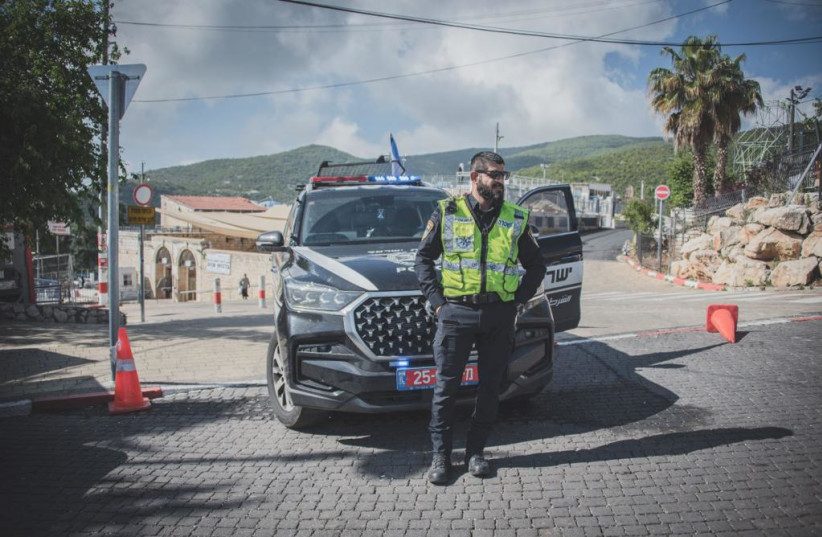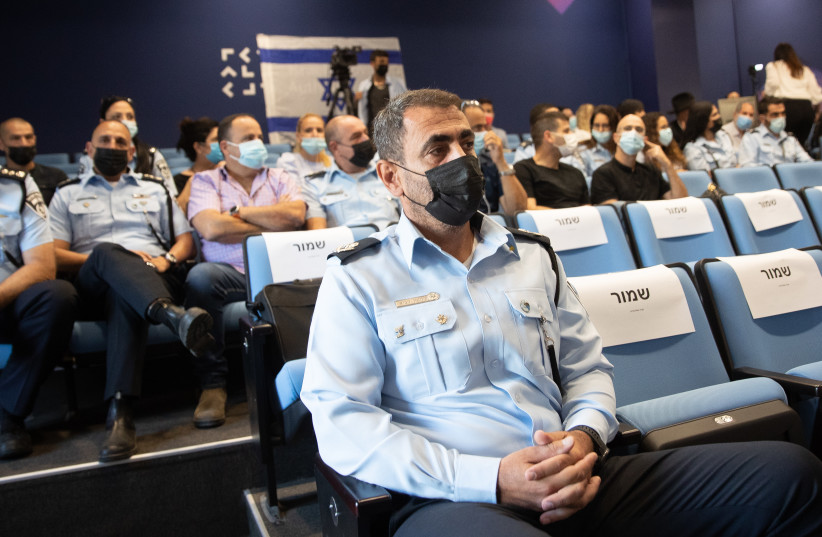Two years after disaster, Israel Police prepare for Meron pilgrimage
Authorities have invested heavily in security and organization for the annual Lag Ba’omer pilgrimage to Mount Meron on Monday night, as the families of 45 victims commemorate two years since the deadly 2021 crowd crush.
Hundreds of thousands are expected to come to Meron, but several measures have been put in place to avoid overcrowding and overloading of infrastructure.
No more than 50,000 to be allowed on Mount Meron
No more than 50,000 celebrants at a time will be allowed on the mountain and near the complex surrounding the tomb of Rabbi Shimon bar Yochai. Visitors will be permitted to stay for five hours.
Worshipers were limited by the need to purchase travel tickets from the Transportation Ministry. Public vehicles aren’t allowed onto the mountain; shuttle buses will take visitors up to the main complex. Entry to the settlement requires permits that expire in the morning.
The year’s festivities have a sharper focus on centralization and organization to allow better control of the crowds. While in the past years traditional holiday bonfires were ignited throughout the complex, 2023 will see one communal bonfire erected at the rabbi’s tomb.
 Israel Police officer is seen during an emegerncy drill in the town of Meron ahead of the annual Lag BaOmer pilgrimage to Mount Meron on Sunday, May 7, 2023 (credit: ISRAEL POLICE)
Israel Police officer is seen during an emegerncy drill in the town of Meron ahead of the annual Lag BaOmer pilgrimage to Mount Meron on Sunday, May 7, 2023 (credit: ISRAEL POLICE)The main complex has been expanded with new infrastructure. Further celebration sites have been added to prevent overcrowding at one location. Last Wednesday, following heavy rainfall, the complex was tarred and reinforced to counter concerns of flooding.
Thousands of organizers are set to oversee the site on Lag Ba’omer, and to prevent scenarios like the unexpected funneling of people into unsafe choke points as in 2021, while 8,000 security personnel are expected to secure both the town and the tomb. A spokesman said on Thursday that Israel Police would be operating helicopters, all-terrain vehicles, motorcycles and drones to patrol and monitor the site.
Israel Police drill emergency scenarios after Meron disaster
On Friday, police ran drills simulating emergency scenarios.
Teams of ZAKA and United Hatzalah emergency services, including doctors, paramedics and medics, will operate at the site.
Authorities are focusing on child safety. Bracelets with parents’ phone numbers will be given to children at special stations, and a call line, 1220, is available to notify ZAKA and the police of missing persons. The Communications Ministry has set up reception towers to improve coverage for civilians and security services.
Many of the changes to the security and organization of Meron come under the regulation of an April 2 law. The law was based on the interim recommendations of the Mount Meron Disaster Commission.
National Security Minister Itamar Ben-Gvir toured the site on Wednesday and talked to police.
“It is still early to conclude but I see the professionalism, and I hope, pray and believe in you that this event will pass safely,” said Ben-Gvir.
Otzma Yehudit MK Zvika Fogel said during the tour that he was impressed with the investment and work that had gone into the preparations, and was optimistic the celebration would pass safely.
While politicians seemed satisfied that lessons had been learned from the failings of the 2021 celebration, two years later there has been little sign of accountability for the disaster.
Former police commander Shimon Lavi is the only official to have resigned over the incident, saying in mid-April at the ongoing Meron tragedy hearings that he wouldn’t shirk his responsibility.
 Commander of the Northern District Police Superintendent Shimon Lavi, the first witness of the Meron committee on August 22. (credit: YONATAN SINDEL/FLASH90)
Commander of the Northern District Police Superintendent Shimon Lavi, the first witness of the Meron committee on August 22. (credit: YONATAN SINDEL/FLASH90)However, the Meron commission also issued letters warning of negligence or legal failings by Prime Minister Benjamin Netanyahu, Knesset Speaker Amir Ohana (who was public security minister at the time) and police chief Kobi Shabtai. Religious and engineering services have been criticized for ignoring warnings about the insufficient safety measures at the holy site.
Suits have been filed by families against the various authorities, seeking compensation for negligence.
In mid-April, the first foreign lawsuits were filed seeking NIS 3.5 million in damages each for the loss of relatives. Eight different government bodies and local authorities were targeted in the suits, including the Israel Police, fire departments, the Interior Ministry and National Center for the Development of Holy Sites.




Comments are closed.